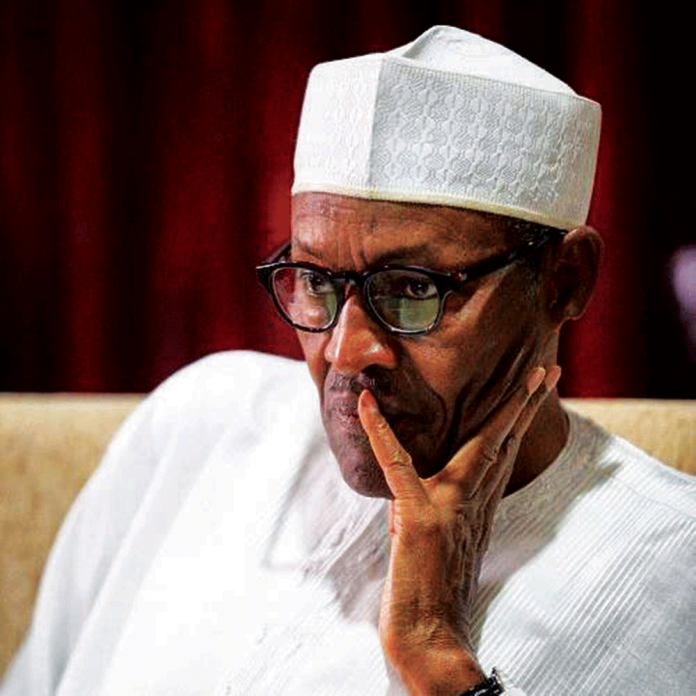President Muhammadu Buhari’s economic and diplomatic shuttles of the past few months is capable of helping his government implement his expansionary budget of 2016, writes Correspondent, SAM NWOKORO.
Muhammadu Buhari received a huge dose of goodwill from world powers and other vital players in global politics, diplomacy and economy when he was sworn in on May 29, 2015 as Nigeria’s President. Some of the countries he has visited include: United States, Britain, France, Germany and India. He was also at the G7 Summit, the UN 70th General Assembly and some African countries.
In today’s world, the concept of interdependence has made it imperative that national economies are virtually intertwined. There is increasing competition for foreign capital by developing nations where Nigeria belongs.
Nigeria plans to grow her economy to be among the world’s 20 biggest by 2020, some four years away. According to 2014 estimates, the size of her economy is about $510 billion, although an international rating body, JP Morgan, has done some downgrading claiming it was based on certain criteria including Nigeria’s refusal to further allow the naira to slide, something Buhari’s economic managers say is no longer good for the economy.
Nigeria has planned a N7 trillion fiscal budget it dubbed a stimulus or “expansionary budget”. Growth indicators are not so fascinating as such to make one believe the budget can effectively be funded with domestic resources without external input in the form of foreign direct investment (FDI), loan, aids or grants. Already, the 2016 budget proposes to raise about $35 billion or more to balance it.
According to Dr. Mike Ikhariale, foremost lawyer, don and social critic, “Nigeria’s economy is now much in need of external co-operation than ever before. It is not only Nigeria that is in need of foreign economic co-operation; even the richest nations of the world like the United States is courting China to buy bonds and seeking more ways to penetrate Chinese market. China too is not minding the terrorism rampaging the world and courting African markets so much to cater for her mammoth population.
“Economic exigencies is reducing political ideological differences. So Nigeria, being a member of the world family and facing almost the same challenges like every other nation, needs external partnership to help accelerate economic growth. That is why the recent trips by the President should not be easily dismissed as a jamboree. I don’t buy that propaganda.”
Looking at the budget being prepared, he further said, one can see it is the biggest budget ever to be implemented in the country. Nigeria has proposed a budget of N6 trillion whereas oil, which price is falling, still remains the chief source of revenue for much of the proposals. So the need for external funding cannot be ignored.”
Here are possible sources of external funding for Buhari’s mammoth N6 trillion budget being proceeds of his many diplomatic shuttles, some a carry-over from the immediate past administration.
Security
Right from the days preceding the last general election in March, the issue of insecurity plagued the nation. The attacks of Islamic fundamentalist sect, Boko Haram, escalated and caused the past administration to resort to many hasty containment measures such as poorly supervised arms procurement which is now brewing scandals bordering on corruption.
Also, there were the problems of poor military equipment, intelligence and logistics to counter the insurgency in the North East part of the country. The government of the day has also continued to assemble multilateral coalition forces against insurgency.
To cope with the task of containing the insecurity problem, Buhari’s economic managers have been receiving a lot pledges of assistance to fight Boko Haram. From U.S. is $1 billion aid in economic reconstruction of the North East, $2,500 to a network of Nigerian Community-based Organisations (CBOs) to help in the resettlement of the Internally Displaced Persons (IDPs), while another tranche probably remained out of the $2.3 billion Washington pledged in total after Buhari’s visit in August. Also, the government has got pledges of military assistance, some $5 million advanced by Washington to the multinational force against Boko Haram in addition to information sharing, training of armed forces personnel and logistics.
France, Britain and virtually all the world powers pledged one form of assistance or another in this directive. There is the opinion in the wider public circles that if the government pursues the fulfilment of these pledges and ensured they were strictly applied as given, insecurity problems might not pose a threat to the implementation of the huge N6 trillion budget proposal next year.
The G7 pledge
The Group of Seven industrialised nations made up of U.S., France, Britain, Canada, Russia, Italy, Germany and Japan made various pledges to Buhari when he visited their summit in Germany earlier in June. Part of those promises include to help his government contain terrorism, recover looted funds and advance FDI. Since then, a flurry of trade delegations from countries such as China, U.S., Britain, Germany and Japan have visited Nigeria. Unfortunately, most of these trade groups came before Buhari could appoint his ministers. Only the permanent secretaries in the affected ministries received them. Details of the visits were hardly made public beyond press coverage. Even then, some of those permanent secretaries that hosted these trade groups might have been relieved of their offices in the flurry of sacks since the inception of the Buhari regime.
An economist, Dr. Godwin Nzeaka, posited: “Pursuit of all trade co-operation agreements between Nigeria and other nations is crucial for investment flow into the country. Some element of continuity is integral to the sustainability and honouring of trade agreements and treaties.” It is not known to what extent the Buhari regime has taken this into consideration since the inception of his government.
India’s investments
The last trip the president made in the area of economic diplomacy was to India where he went with trusted party loyalists and aids. There were renewal of trade agreements between the two countries. India pledged to invest in infrastructure such as rail development, information and communication technology (ICT), and agriculture.
The Nigeria’s railway has been governments’ top priority infrastructure project for long. The last administration spoke about the idea of unbundling it. The extent it went about it before it was voted out of office has remained largely out of public knowledge. But a Director General in the Bureau of Public Enterprises (BPE), an arm of government in charge of sale of publicly owned entities, Benjamin Dikki, while speaking on plans to finish everything about the privatisation of the railway in 2016, said: “Funding challenges facing the future of rail in Nigeria seems dependent on the efficiency and professionalism which the private sector can bring to improve railway operations. The railway reform, restructuring and privatisation programme is specifically aimed at achieving the provisional framework for private sector-led growth through expanded domestic and foreign investment, improve NRC (Nigerian Railway Corporation)’s ability to provide adequate, safe, reliable and efficient rail services and reduce NRC’s dependence on Federal Government’s budgets by introducing private sector investment in the sector.”
It is here probably that Buhari’s economic managers will leverage on such railway experts from countries such as Canada, India, Sweden and Norway to revamp the rail system which is critical for his economic expansion drive.
Chinese pledge
China also made a strong trade delegation visit to Buhari shortly after he was sworn in, pledging investments in agriculture, oil and gas and infrastructure. Already, China is closing the gap in investment in Africa with other North American and European countries. She is handling series of construction projects in Nigeria such as rail and roads most under Public-Private Partnership (PPP) arrangements.
Loot recovery
This is where virtually all countries that matter in the world have pledged to help Nigeria. The U.S. Department of States Unit on Drug, Narcotics and Money Laundering recently published, in fact as far back as 2005, the list of banks in the Americas and Europe harbouring Nigeria’s stolen money. It is the view of experts that recovering these monies will go a long way in funding the government’s big budget next year. U.S. and Britain especially have pledged to help the President in this regard.
Maintaining standards
Maintaining and conducting international business relations in accordance with statutory international laws and standards is the vogue. Here, political party interests and patronages have no place if such inclinations breach international laws governing contracts and obligations of parties. This is crucial since the administration has stated that it would be involving private sector funding in executing much of its promised infrastructure projects.





